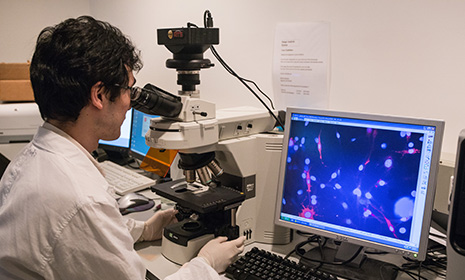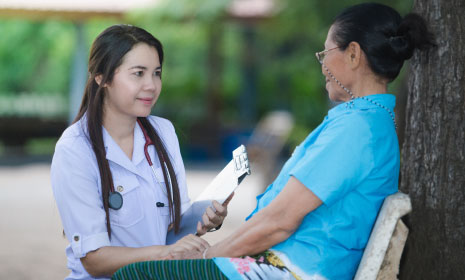FAMILY: A Jockey Club Initiative for a Harmonious Society Cohort Study Result Announcement - A Social Barometer for Hong Kong From Family Harmony to Social Cohesion
More than 60% of respondents to a major territory-wide study on health, happiness and harmony in Hong Kong families indicated that they enjoyed harmonious relationships within the family, possibly reflecting the strong attachment to family values in Chinese society. About half of the respondents found their neighbours willing to help each other, but fewer than 15% took part in voluntary service.
The findings are part of the results obtained by the "FAMILY: A Jockey Club Initiative for a Harmonious Society" ("FAMILY Project"), supported by The Hong Kong Jockey Club Charities Trust and conducted by the School of Public Health of The University of Hong Kong.
Specially designed questions were deployed to assess family harmony, with a view to understanding respondents" relationships with family members and assessing the degree of harmony in the family. Sixty percent of respondents agreed that they enjoyed harmonious family relationships, scoring 75 or above, and 3% scored the maximum point of 100.
To assess the level of social capital, the study examined respondents" participation in their neighbourhood and in society at large. Just under half of the respondents regarded their neighbours as willing to help each other, and another 50% said they got along well with their neighbours. The analysis was carried out at the level of the "tertiary planning unit", which is the basic unit used by government for town planning purposes. The whole territory of Hong Kong is divided into about 300 TPUs. The findings will provide useful data for the government and non-governmental organisations in planning for and delivering local services.
Only 14% of respondents had taken part in voluntary service in the 12 months preceding the survey. Volunteering, a common indicator of social participation, remains low in Hong Kong compared with other developed regions (e.g. Australia, the United States and Canada) Volunteers generally reported a better state of well-being than those who did not participate in volunteer activities.
The study also interviewed more than 1,000 new immigrants who settled in Hong Kong for shorter than 10 years, with the aim of understanding the extent of their integration into the community. Three to 17% of interviewees reported past experience of discrimination since coming to Hong Kong, including being rudely or unfairly treated.
Professor Gabriel Leung, Head of Community Medicine at HKU Li Ka Shing Faculty of Medicine, said: "Our findings show that the family unit remains at the core of our social structure. Hong Kong people enjoy good family relationships and neighbours are generally willing to look out for each other. However these positive inter-relational dynamics at the family and neighbourhood levels have yet to find full expression in society writ large, as indicated by limited social participation in volunteering and in the level of discrimination still experienced by new immigrants. Our findings confirm social epidemiologic theory that unfair treatment could adversely affect the health and well-being of those who suffer from discrimination."
Describing the FAMILY project as a social barometer, Mr Douglas So, Director, Charities, The Hong Kong Jockey Club stated that as the first territory-wide project of its kind studying the triaxial relations between health, happiness and harmony in the household setting, the aim is to gain comprehensive understanding about the community and to facilitate the formulation of schemes that will answer society"s evolving needs. Ultimately we hope to see that the FAMILY project will contribute towards healthier, happier and more harmonious families in Hong Kong."
FAMILY Project cohort study: A population-based household survey
The Hong Kong Jockey Club Charities Trust has invited the School of Public Health of The University of Hong Kong Li Ka Shing Faculty of Medicine to collaboratively launch a project entitled "FAMILY: A Jockey Club Initiative for a Harmonious Society" (FAMILY Project") with a HK$250 million donation. From March 2009 to March 2011, the 1stround of the "FAMILY Project cohort study: A population-based household survey" was conducted. The survey explored a wide variety of topics related to Health, Happiness, and Harmony (3Hs). The 2nd round household survey, a follow-up to the 1st, began in July 2011 and will continue for 24 months.








.png)
